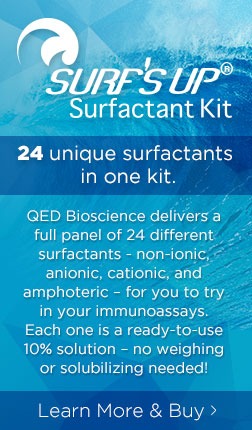Anti-Akt (Phospho-Thr308) Antibody (43055)
$441.00
SKU: 43055
Categories: Antibody Products, Phospho-specific Antibodies
Overview
Product Name Anti-Akt (Phospho-Thr308) Antibody (43055)
Description Anti-Akt (Phospho-Thr308) Rabbit Polyclonal Antibody
Target Akt (Phospho-Thr308)
Species Reactivity Human, Mouse, Rat
Applications WB,IHC,IF
Host Rabbit
Clonality Polyclonal
Immunogen Peptide sequence that includes phosphorylation sites of Serine threonine 308 (M-K- T(p)-F-C) derived from human Akt and conjugated to KLH.
Properties
Form Liquid
Concentration 1.0 mg/mL
Formulation PBS (without Mg2 and Ca2 ), pH 7.4, 150mM NaCl, 0.02% sodium azide and 50% glycerol.
Buffer Formulation Phosphate Buffered Saline
Buffer pH pH 7.4
Buffer Anti-Microbial 0.02% Sodium Azide
Buffer Cryopreservative 50% Glycerol
Format Purified
Purification Affinity-purified on phosphopeptide; non-phosphopeptidereactive antibodies were removed by chromatography on non-phosphorylated peptide
Specificity Information
Specificity This antibody detects endogenous human, mouse, and rat Akt only when phosphorylated at threonine 308.
Target ID Akt (Phospho-Thr308)
Uniprot ID P31749
Post Translational Modification Akt (Phospho-Thr308)
Target Phospho-thr308
Research Areas Phosphospecific Antibodies
Background Akt, also known as Akt1 and Protein kinase B (PKB), is a serine/threonine-specific protein kinase that plays a key role in multiple cellular processes such as glucose metabolism, apoptosis, cell proliferation, transcription and cell migration. Akt1 is also able to induce protein synthesis pathways and is, therefore, a key signaling protein in the cellular pathways that lead to skeletal muscle hypertrophy, and general tissue growth. Since it can block apoptosis, and thereby promote cell survival, Akt1 has been implicated as a major factor in many types of cancer.
Handling
Storage This antibody is stable for at least one (1) year at -20°C.
Dilution Instructions Dilute in PBS or medium that is identical to that used in the assay system.
Application Instructions Immunoblotting: use at dilution of 1:500-1:1,000. A band of ~60kDa is detected.
Immunohistochemistry: use at dilution of 1:50-1:100.
Immunofluorescence: use at dilution of 1:100-1:200.
These are recommended working dilutions.
End user should determine optimal dilutions for their applications.
Immunohistochemistry: use at dilution of 1:50-1:100.
Immunofluorescence: use at dilution of 1:100-1:200.
These are recommended working dilutions.
End user should determine optimal dilutions for their applications.
References & Data Sheet
Data Sheet  Download PDF Data Sheet
Download PDF Data Sheet
 Download PDF Data Sheet
Download PDF Data Sheet


